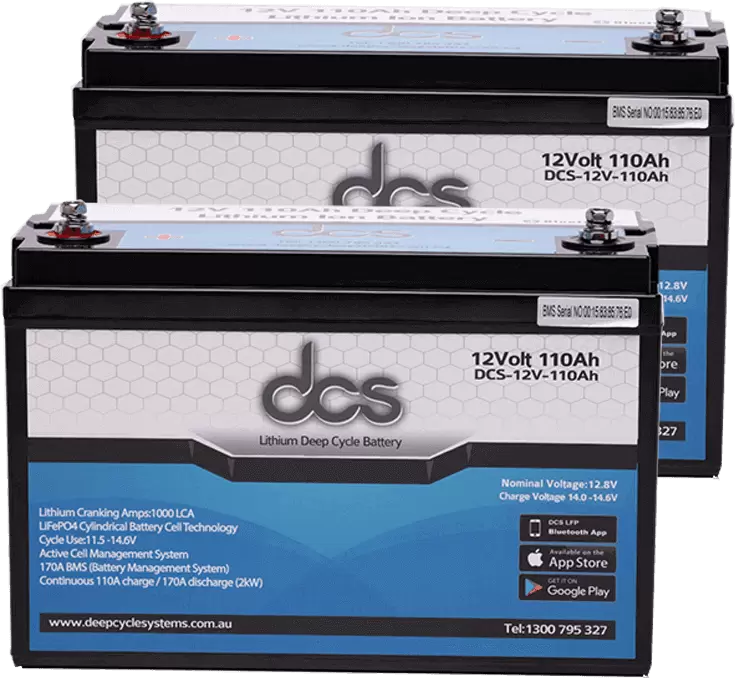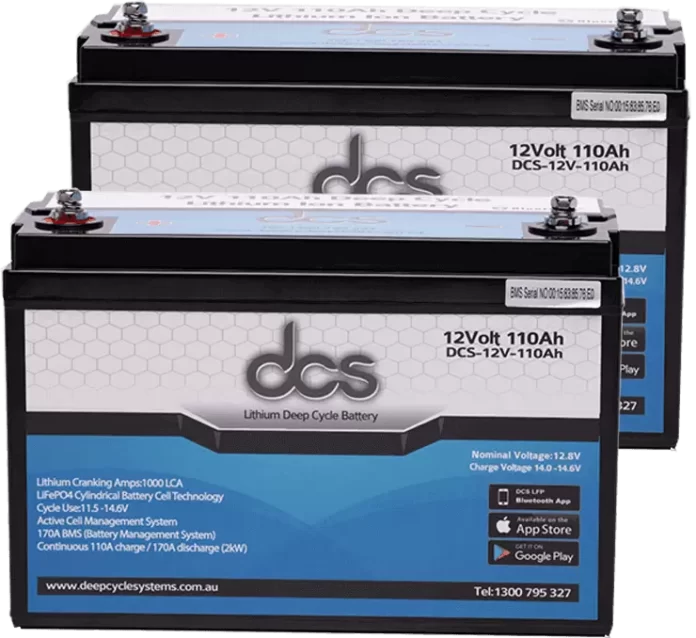Electric vehicles are becoming increasingly popular, and the key to their success is the Lithium-Battery Pack. Lithium batteries provide the most efficient energy storage for electric cars, making them lighter and more powerful than ever before. In that blog post, they will discuss the advantages of using Lithium-Battery Packs in electric vehicles, the different types of lithium batteries and how they can be used in solar-powered applications. They will also discuss the future of electric vehicles, focusing on Lithium Battery Pack. Read on to learn more about the potential of electric cars with Lithium-Battery Packs!
What Is A Lithium Ion Battery Pack?
A Lithium-Battery Pack is a rechargeable battery that uses lithium ions as the primary energy source. Lithium batteries are popularly used in many electronic devices such as mobile phones, laptops, cameras, etc. They are also used in electric vehicles as a form of energy storage. Lithium Ion Battery Pack typically consists of several cells or cells grouped to provide a higher voltage and/or capacity. Each cell contains an anode, cathode, and electrolyte, which are the components that help store and transfer electrical energy.
 Anode & Cathode of Lithium Battery
Anode & Cathode of Lithium Battery
The anode is made of lithium metal or its compounds, while the cathode is usually made of graphite, manganese oxide, or cobalt oxide. The electrolyte is generally composed of liquid or gel, containing either a solution of lithium salts or other compounds. Lithium Battery is known for their high energy density and low self-discharge rate, making them an ideal choice for portable devices. That makes them an increasingly popular option for electric vehicles, as they can store large amounts of energy for extended periods.
How Do Lithium-Battery Packs Work?
Lithium-Battery Packs are rechargeable batteries that use lithium ions to store energy. They are composed of two electrodes: a cathode and an anode. The lithium ions move between the electrodes during charging and discharging, storing energy. When the battery is discharged, the lithium ions move from the cathode to the anode, releasing energy. During recharging, the opposite happens. Electricity is supplied to the battery, which causes the lithium ions to move back to the cathode, storing energy in the process.
Lithium-Battery Packs come in various sizes and capacities, depending on their intended use. They are often used in portable devices such as phones and laptops due to their high energy density and long lifespan. Lithium batteries are also becoming increasingly popular in electric vehicles, offering high power and efficiency. Lithium-Battery Packs have other advantages. For example, they have a low self-discharge rate, meaning they can retain a charge for extended periods without losing capacity. Furthermore, they are more resistant to overcharging than other types of batteries, making them a safe and reliable power source.
The Benefits Of Using Lithium Ion Battery In Solar Energy Systems
The use of Lithium-Battery Packs in solar energy systems has several advantages. Lithium batteries are lightweight, durable and have a higher energy density than other types of batteries. That means they can store more energy than different types of batteries, making them an ideal choice for powering small solar energy systems. Lithium-Battery Packs are also more efficient when charging and discharging than other battery types. That makes them ideal for applications requiring frequent charging and discharging, such as portable solar power systems. Lithium Ion Battery are low maintenance and require little upkeep or monitoring. That benefits those who want a reliable and easy-to-use power source for their solar energy system. Lithium-Battery Packs are relatively inexpensive compared to other types of batteries. That makes them an attractive option for those looking for a cost-effective way to store energy from their solar energy system.
Lithium Solar Battery; The Future Of Electric Vehicles?
Electric vehicles (EVs) are a revolutionary and environmentally friendly form of transportation. In recent years, the market for electric vehicles has grown exponentially. The demand for EVs is expected to keep increasing as more and more consumers become aware of the benefits of owning an EV.
- One main component that makes EVs so efficient is the Lithium Solar Battery. Lithium-ion batteries are known for their high energy density and low environmental impact. These batteries are used in various applications, including electric cars, laptops, phones, and solar energy systems.
- Lithium-ion battery packs offer advantages over traditional lead-acid batteries, including longer life span, lighter weight, lower maintenance requirements, and higher efficiency. They also produce less environmental waste and are better suited to storing energy from renewable sources such as solar and wind power.
- With the development of new technology, Lithium-Battery Packs will become even more efficient and cost-effective. Battery packs will also store more significant amounts of energy and last for more extended periods. That means that EVs will become more affordable and accessible to a broader range of consumers.
- Advancements in charging infrastructure will make it easier for drivers to find places to charge their vehicles. As more charging stations become available, drivers will have more freedom to travel farther distances without worrying about running out of power.
Why Is Solar Lithium Battery The Best Choice For Portable Devices?
Portable devices such as laptops, tablets, and smartphones require robust and reliable energy sources to run smoothly. Lithium-Battery Packs are ideal for powering these devices due to their lightweight, long life span, and high efficiency. A Solar Lithium Battery typically consists of two or more lithium cells wired together in a series. A positive and negative lead connects these cells and can be charged with a wall charger or solar panels. The cells are small, allowing them to be used in compact and lightweight designs. Due to their lightweight design, Lithium-Battery Packs can provide a higher energy density than other types of batteries. That means they can store more power in less space and provide an extended runtime. As a result, they are the perfect choice for powering portable electronic devices.
Long life span of lithium batteries also makes them an excellent choice
They can typically be recharged up to 500 times before losing capacity, making them ideal for long-term use. Most lithium batteries are designed to last ten years or longer, giving users peace of mind knowing their device won’t suddenly die after a few years. Lithium-Battery Packs are highly efficient, which allows devices to run longer on a single charge. That makes them ideal for devices that are used frequently and require long periods of operation, such as tablets and laptops.
The Environmental Impact of Lithium-Battery Packs
When it comes to energy storage, Lithium-Battery Packs are becoming increasingly popular due to their superior energy density, lightweight and long lifespan. However, it is essential to consider these batteries’ environmental impact before deciding whether or not to use them. The production of lithium-ion batteries is energy-intensive and produces a significant amount of carbon dioxide emissions. Lithium batteries can produce toxic fumes and gases when heated, and the heavy metals used in manufacturing can be hazardous to the environment. In addition, disposal of these batteries can also be harmful if they are not properly recycled.
Small Ecological Footprint
Despite these potential environmental concerns, Lithium-Battery Packs have been shown to have a relatively small ecological footprint when compared to traditional lead-acid batteries. That is because they are more efficient in power output and require fewer raw materials to manufacture. Some lithium-battery manufacturers are making their products more eco-friendly by using recycled materials or reducing their reliance on heavy metals. The environmental impact of Lithium-Battery Packs depends on how they are used and disposed of. With proper care and maintenance, lithium batteries can provide an efficient and sustainable energy source for many applications. However, their environmental impact can be severe if not handled properly. It is, therefore, essential that consumers consider the potential effects of these batteries before deciding whether or not to use them.
The Importance of Proper Storage And Disposal Of Lithium Batteries Packs
As technology advances, lithium batteries are becoming increasingly popular for various applications. Lithium-Battery Packs are used in electric vehicles, portable devices, and solar energy systems. Because lithium batteries are so powerful and versatile, they must be stored and disposed of properly to ensure safety and maximize lifespan. When storing Lithium-Battery Packs, ensuring they are in a dry, calm, and well-ventilated area is essential. Excessive heat and moisture can cause the cells within the battery to degrade faster and reduce their longevity. Lithium-Battery Packs should also be kept away from metal objects since contact between the two can cause short circuits or sparks. Finally, never store a Lithium-Battery Pack with a full charge for long periods, as that can cause them to overheat or catch fire.
Conclusions
Lithium-Battery Packs are an excellent choice for portable devices, providing a reliable and long-lasting power source. Using Lithium-Battery Packs for electric vehicles is the future of clean and renewable energy. Their environmental impact is minimal when proper storage and disposal procedures are followed. With these benefits in mind, it is clear that Lithium-Battery Packs will be the power source of choice for many years to come.
Related Websites:
Articles on Blogshunt
Articles on tbablogs
Articles on Blogspeoples
Articles on Thebigblogtheory
Articles on Allcityforums


